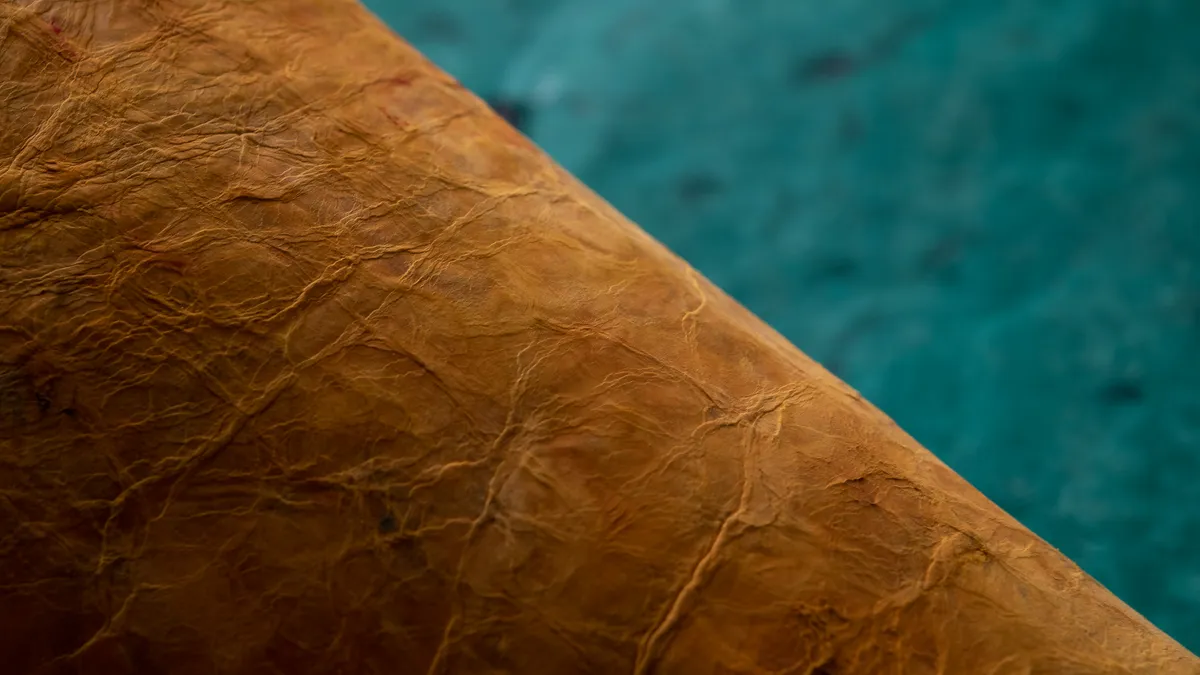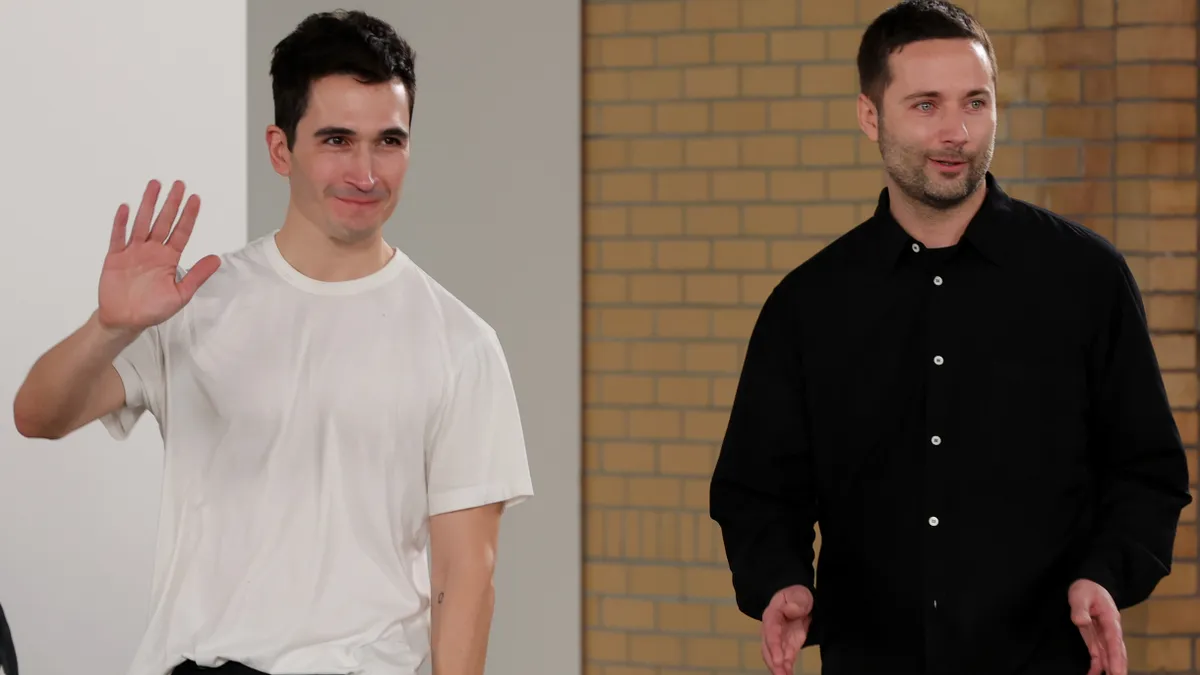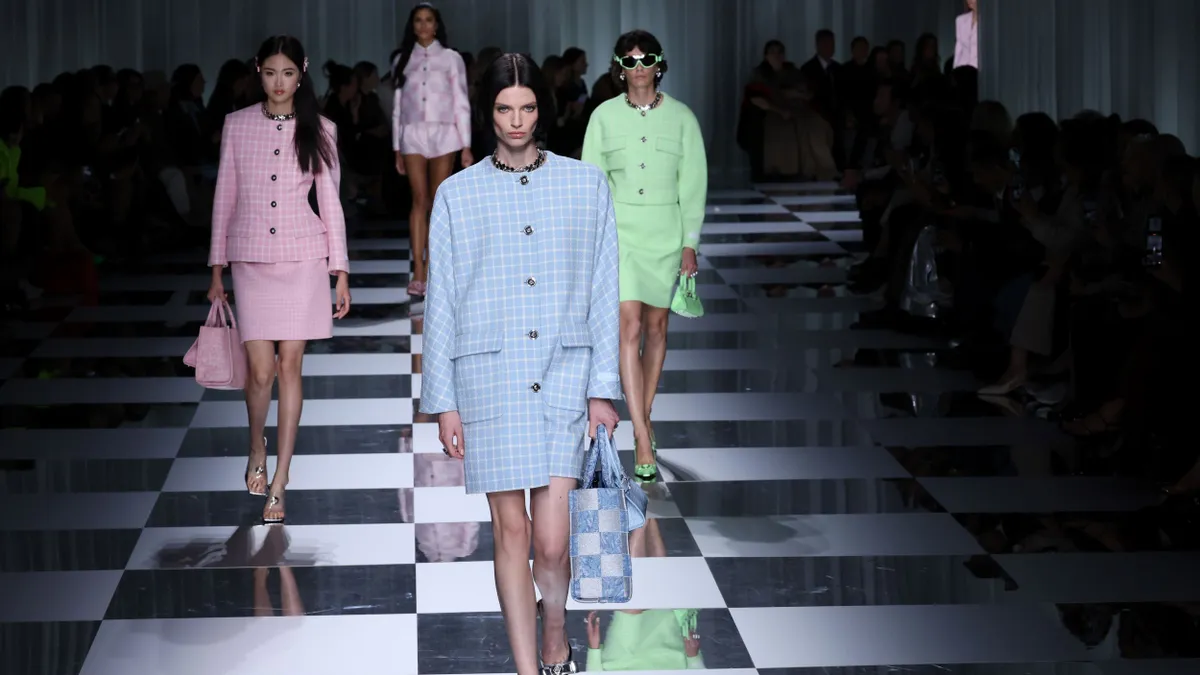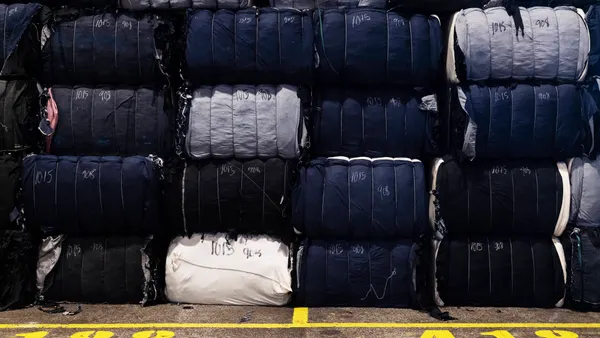Dive Brief:
- Ecovative Design LLC, a biological science and design company focused on mycelium technology, announced on Tuesday an initial closing of a Series E round of more than $30 million.
- A portion of the new funding will be directed toward scaling its Forager division, which supplies mycelium-derived hide textiles and flexible foams to brand partners. Those currently include Ecco Leather, and members of the Fashion for Good Cooperative including Bestseller, Vivobarefoot, PVH Corp., Wolverine Worldwide, Pangaia and The Reformation.
- This round brings the total raised by Ecovative to date to $120 million. The material supplier says it plans to expand its production to accommodate new, not-yet-announced commercial product launches in footwear and apparel.
Dive Insight:
A Forager spokesperson said in an email that there are a number of collaborations underway with “world class brands in fashion, apparel and automotive,” which the company plans to reveal “in the near future.”
“For the moment we are focused on limited runs, with the first commercial products available in 2024,” said the spokesperson. “Our Series D round in 2021 was to support R&D and building the world's largest mycelium farm. The latest raise is all about turning out products and getting them into people's hands.”
The latest fundraising round was led by Viking Global Investors and includes Standard Investments, FootPrint Coalition Ventures and AiiM Partners, with Citi serving as advisors on the transaction.
The textiles and foams Forager produces are grown in large sheets of pure mycelium on specialized vertical farms, which can also integrate directly with existing mushroom farms, according to the spokesperson. The result is an interwoven material tuned to specific products and applications.
“This includes foams like you'd find in shoes, clothing and car seats, or durable hides ideal for making shoes, jackets, and all kinds of other products,” said the spokesperson. “The material is literally grown, using low-value leftovers from agriculture as feedstock that would otherwise be burned or thrown away. This process uses no plastic, as well as far less water, land, energy and other resources, resulting in material that is completely natural and compostable.”
Ecovative said this circularity makes mycelium hide appealing as a textile but also touts its ability to mimic existing hides in manufacturing. “Tanneries can work with it just as they would an animal hide,” said the spokesperson, adding that the mycelium foams offer high breathability and insulation.
Over the past year, Ecovative has been working to scale its technologies. In addition to Forager, it has two additional divisions: Mushroom Packaging, which makes protective packaging materials, and MyForest Foods, which makes meat alternatives, and received $15 million of the new funding round. Ecovative recently commissioned 120,000 square feet of new manufacturing facilities and acquired a state-of-the-art raw materials facility in the Netherlands. Additionally, through its research and development lab Mycelium Foundry, Ecovative produces new and custom mycelium materials, products and applications.
Founders Eben Bayer and Gavin McIntyre met as students at Rensselaer Polytechnic Institute in 2006 and launched Ecovative in 2007. It was among the first companies to introduce mycelium materials as a commercial category.
In the funding release, CEO Bayer said, “Our goal is to hack capitalism to support Spaceship Earth: building factories that produce clean air, clean water, and healthy soil, while growing delightful materials that meet everyday needs and produce extraordinary profits.”
Yet even as new textile development scales, these new products may not impact fashion’s current environmental footprint. Lobbying on behalf of California’s new Responsible Textile Recovery Act of 2023, currently in assembly, Senator Josh Newman recently wrote, “Each year, the average US consumer discards more than 81 pounds of clothing.”
Clarification: This article has been updated to include a link to California Bill SB 707.











